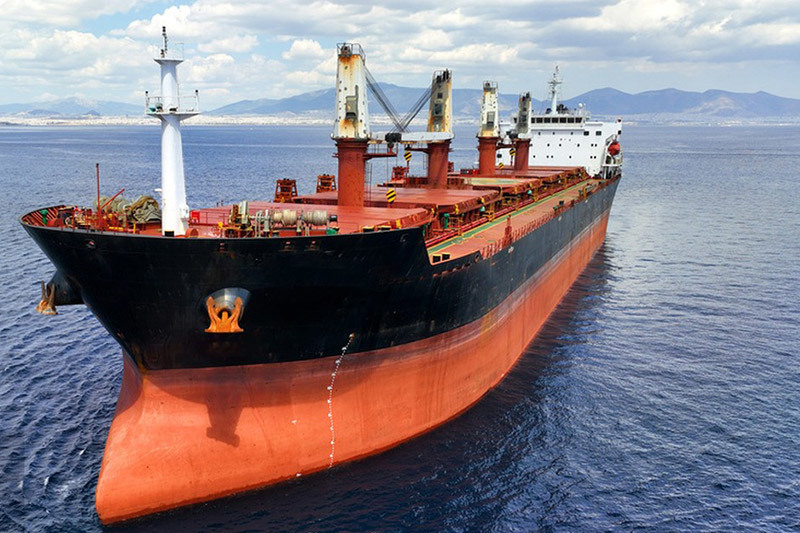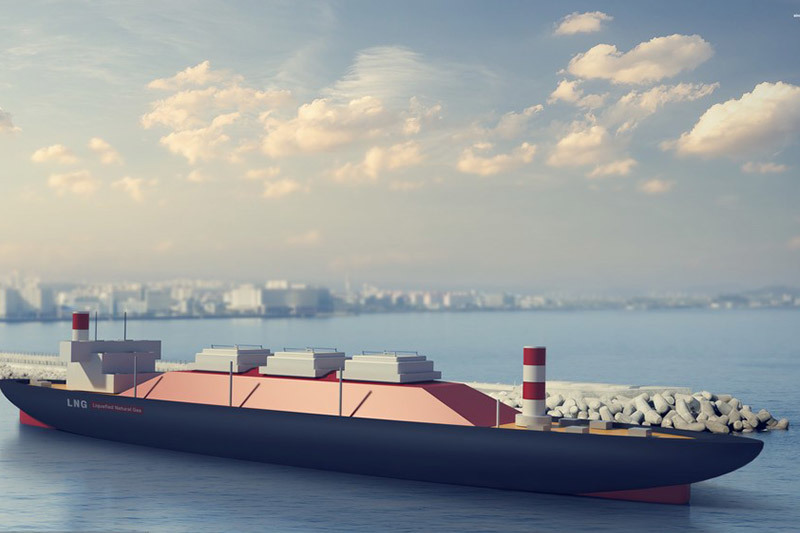news
Understanding the Advantages of Self Unloading Bulk Carriers in Modern Shipping
Understanding the Advantages of Self Unloading Bulk Carriers in Modern Shipping
Table of Contents
- Introduction to Self Unloading Bulk Carriers
- What Are Self Unloading Bulk Carriers?
- History and Evolution of Self Unloading Bulk Carriers
- Benefits of Self Unloading Bulk Carriers
- Technological Advancements in Self Unloading Bulk Carriers
- Challenges and Solutions in Implementing Self Unloading Systems
- Future Trends in Self Unloading Bulk Carrier Design and Usage
- Conclusion
- Frequently Asked Questions
Introduction to Self Unloading Bulk Carriers
In the modern shipping industry, the quest for efficiency and cost-effectiveness has led to the emergence and increased utilization of **self unloading bulk carriers**. These specialized vessels are not only revolutionizing how bulk materials are transported, but they also significantly optimize the unloading process. Utilizing advanced engineering and technological innovations, self unloading bulk carriers offer a seamless solution for transporting various materials, from agricultural products to industrial goods.
What Are Self Unloading Bulk Carriers?
Self unloading bulk carriers are cargo ships designed with integrated unloading systems that allow vessels to discharge their cargo without the need for external equipment. This innovative design features conveyor belts, pumps, and hydraulic systems that facilitate the unloading process, making it a game-changer in maritime logistics. The ability to unload cargo efficiently on-site translates to reduced port congestion and faster turnaround times, enhancing overall operational productivity.
History and Evolution of Self Unloading Bulk Carriers
The history of self unloading bulk carriers dates back to the early 20th century when the shipping industry began to explore means of improving efficiency. Initially, these vessels were developed to address the challenges associated with traditional bulk carriers, which relied on manual unloading methods. Over the decades, advancements in technology, such as the introduction of conveyor systems and hydraulic mechanisms, have led to the evolution of self unloading bulk carriers into sophisticated, high-capacity vessels. Today, these ships are essential in meeting the demands of global trade and the shipping industry.
Benefits of Self Unloading Bulk Carriers
Self unloading bulk carriers provide a host of advantages that contribute to the efficiency and sustainability of the shipping industry. Here are several key benefits:
Increased Efficiency and Productivity
One of the primary advantages of self unloading bulk carriers is their **increased efficiency**. These vessels can unload cargo without waiting for shore-based equipment, significantly reducing turnaround times at ports. As a result, shipping companies can optimize their schedules and increase the frequency of shipments. Additionally, the automation of the unloading process minimizes labor costs and the risk of human error, further enhancing productivity.
Cost Reduction in Operations
The operational cost savings associated with self unloading bulk carriers are considerable. By eliminating the need for external unloading equipment, shipping companies can reduce capital expenditures and maintenance costs. Moreover, the faster unloading times lead to increased cargo throughput, allowing companies to maximize their revenue potential. Overall, self unloading bulk carriers represent a compelling investment for businesses looking to streamline their operations.
Environmental Benefits
In today's environmentally conscious world, the shipping industry faces pressure to adopt sustainable practices. Self unloading bulk carriers contribute to this goal by minimizing the environmental impact of shipping operations. With faster unloading times, vessels can spend less time in port, which reduces emissions from idling engines. Furthermore, the use of closed-loop systems helps to prevent spillage and contamination, protecting marine ecosystems.
Technological Advancements in Self Unloading Bulk Carriers
The ongoing development of **cutting-edge technologies** has played a vital role in the evolution of self unloading bulk carriers. Innovations such as automated cargo handling systems, real-time data analytics, and improved vessel design enhance the functionality and performance of these ships. Recent advancements in propulsion technology also contribute to greater fuel efficiency, aligning with the shipping industry's push for greener practices.
Challenges and Solutions in Implementing Self Unloading Systems
While the benefits of self unloading bulk carriers are clear, there are challenges associated with their implementation. These challenges include the initial investment costs, the need for specialized maintenance, and the training of crew members to operate complex systems effectively. However, shipping companies can overcome these challenges through strategic planning and collaboration with manufacturers. Investing in training programs and maintenance contracts can ensure that these vessels continue to operate at peak efficiency.
Future Trends in Self Unloading Bulk Carrier Design and Usage
As the shipping industry evolves, so too does the design and utilization of self unloading bulk carriers. Future trends may include the integration of **smart technologies**, such as the Internet of Things (IoT) and artificial intelligence (AI), to enhance operational efficiency. These technologies can enable predictive maintenance, optimize unloading processes, and provide real-time data for better decision-making. There is also a growing trend towards designing eco-friendly vessels that reduce the carbon footprint of shipping operations, aligning with global sustainability goals.
Conclusion
The advent of self unloading bulk carriers represents a significant advancement in the shipping industry. By enhancing efficiency, reducing operational costs, and promoting environmental sustainability, these vessels are paving the way for a more streamlined and responsible approach to maritime logistics. As technology continues to evolve, self unloading bulk carriers are likely to play an even more crucial role in the future of shipping. Embracing these innovations will not only benefit shipping companies but also contribute to a more sustainable global trade environment.
Frequently Asked Questions
1. What types of cargo can be transported by self unloading bulk carriers?
Self unloading bulk carriers are versatile and can transport various types of cargo, including agricultural products like grains, fertilizers, minerals, and other bulk materials.
2. How do self unloading systems work?
Self unloading systems utilize conveyor belts, pumps, and hydraulic mechanisms to discharge cargo directly from the ship without requiring external equipment, streamlining the unloading process.
3. What are the maintenance requirements for self unloading bulk carriers?
Regular maintenance is crucial for self unloading bulk carriers to ensure optimal performance. This includes routine inspections of unloading systems, hydraulic components, and overall vessel integrity.
4. Are self unloading bulk carriers more expensive than traditional bulk carriers?
While the initial investment in self unloading bulk carriers may be higher, the long-term operational cost savings, increased efficiency, and reduced turnaround times often make them a more economically viable option.
5. What are the environmental benefits of using self unloading bulk carriers?
Self unloading bulk carriers contribute to environmental sustainability by decreasing emissions from idling engines, minimizing spillage and contamination, and promoting faster turnaround times in ports.
Other news
The Future of Maritime Transportation: Self Unloading Bulk Carriers Explained
The Future of Maritime Transportation: Self Unloading Bulk Carriers Explained Table of Contents 1. Introduction to Maritime Transportation 2. What Are Self Unloading Bulk Carriers? 3. Historical Evolution of Bulk Carriers 4. Mechanisms of Self Unloading Technology 5. Benefits of Self Unloading Bulk Carriers 6. Environmental Impact of Self Unloading Bulk Carriers 7. Fut
Understanding the 5000 DWT Bulk Carrier: Key Features and Operational Insights
The 5000 DWT (Deadweight Tonnage) bulk carrier is designed to efficiently transport a wide range of bulk cargoes, including grains, coal, minerals, and other solid commodities. Such vessels play a pivotal role in global trade, as they are capable of navigating both coastal and deep-water routes with ease. Their moderate size allows for flexibility in port access and reduced operational costs, maki
Evaluating the Best Practices for Using a Ship Trading Platform
Evaluating the Best Practices for Using a Ship Trading Platform Table of Contents 1. Introduction to Ship Trading Platforms 2. Understanding Ship Trading and Its Importance 3. Key Features of Effective Ship Trading Platforms 4. Best Practices for Successful Ship Trading 4.1 Conducting Thorough Market Research 4.2 Leveraging Data Analytics
Privacy
The Software respects and protects the personal privacy of all users of the Services. In order to provide you with a more accurate and personalized service, the Software will use and disclose your personal information in accordance with this Privacy Policy. However, the Software will treat such information with a high degree of diligence and duty of care. Except as otherwise provided in this Privacy Policy, the Software will not disclose or provide this information to third parties without your prior permission. The Software may update this Privacy Policy from time to time. You will be deemed to have agreed to this Privacy Policy in its entirety when you agree to the Software Service Use Agreement. This Privacy Policy is an integral part of this Software Service Use Agreement. 1. Scope of ApplicationIn your use of the Software's network services, the Software automatically receives and records information on your cell phone, including, but not limited to, your health data, the language used, the date and time of access, information on hardware and software characteristics, and data on webpage records of your needs; 2. Use of InformationAfter obtaining your data, the Software uploads it to the server to generate your leaderboard data so that you can better use the Services. The Software will upload your data to the server to generate your ranking data so that you can use the service in a better way. 3. Information Disclosure 3.1 The Software will not disclose your information to untrusted third parties. 3.2 In accordance with the relevant provisions of the law, or the requirements of administrative or judicial bodies, disclosure to third parties or administrative or judicial bodies; 3.3 If you appear to violate the relevant Chinese laws, regulations or relevant rules, it is necessary to disclose it to a third party; 4. Information Storage and Exchange The information and materials collected by the Software about you will be stored on the servers of the Software and/or its affiliates. The information and data may be transferred to and accessed, stored and displayed outside of your country or region or the country in which the Software collects the information and data. 5. Information Security When using the Software's network services to conduct online transactions, you will inevitably disclose your personal information, such as contact information or postal address, to the counterparty or potential counterparty. Please protect your personal information and provide it to others only when necessary. If you find that your personal information has been compromised, please contact the software's customer service immediately so that the software can take appropriate measures.














